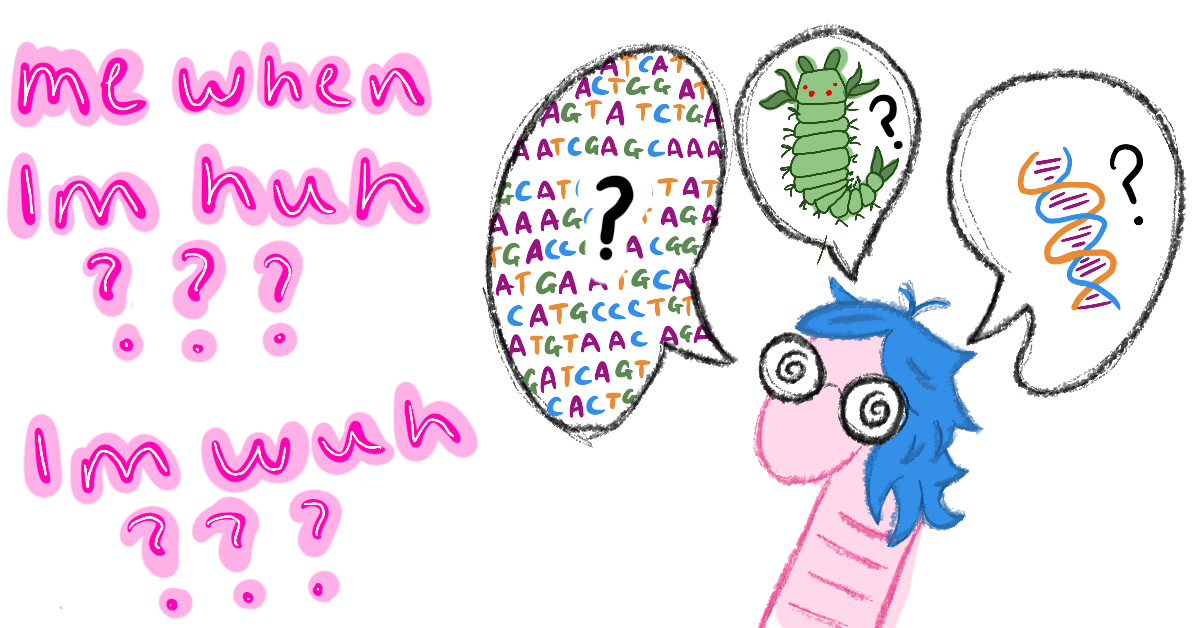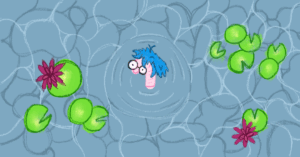What is popping baby boys 🙂 I’m now one whole week (!) into my job, and I’ve pretty quickly discovered some gaps in my knowledge. This is a good thing, much better to have discovered them rather than to continue assuming you know what’s good when you actually have no clue (this is how we accidentally make asses of ourselves).
I’m developing skills and tricks to try and plug my knowledge gaps, and after a week or so of just smoothing out the cracks, I think I have a few good techniques, which you dear reader may try at your leisure, if you would like. They’re all pretty simple I think, and maybe you’ll read them and go “um yeah, obviously”, but sometimes I think it’s good to be reminded of the basics.
Before I get to the silly list, I just wanna say that I’m hoping my next post will be something biological, I think that’d be fun. After writing this post (I know it’s weird that this postscript is coming early in the text, I just wanted it weighted more highly than me telling you to google shit) I don’t know if I’m about the pseudo-help blog. I don’t think the point of this exercise (of blogging) is for me to talk to and advise a reader as much as it’s for me to get my own specific thoughts and experiences out. Maybe that makes for an overly personal and less generally compelling blog, but hell brother I ain’t doin’ this for you anyway!
Anyway. How to learn things in three simple steps.
- Go to the source material
I was asked if I knew about the organisms I’ll be working on, and my answer was “kinda? I know about worms in general, but I don’t really know what makes our worms special“. So the answer is to just go read the big worm textbook about it, clear and simple. There’s no point worrying about how to collect the knowledge in organic and sneaky ways, sometimes you need to brute force if with you, a textbook or article, a notebook and a pen.
- Google is your friend
This is what I mean when I said these would be obvious, but sometimes it’s just nice to be reminded you have agency to go Google shit. It’s a funny one, and not to wax philosophical, but I do think that going off and finding answers yourself on the internet is becoming less intuitive and more of an applied skill. I’ve been a teachers assistant in a programming for biology undergrad course for about 4 years, and I’ve had a significant amount of interactions I’ve had that have gone:
Student:
I have a problem
Me:
Ok, what have you done to troubleshoot since you discovered this problem?
S:
Well. I’m asking you?
M:
Ok, that’s great and I’m here to help, but like, did you think about it at all before asking? Did you Google it and see if you could piece something together?
S:
Nnnno I was just hoping you could tell me the answer
All I’m saying is fellas, sometimes we can think for a minute and then Google it before running off to someone for an answer. Part of the skill is when to run off to someone for help, which brings me to point 3:
- Ask someone
Ok, use this one judiciously. Obviously don’t go running off to the nearest postdoc any time you have a simple question that you could figure out alone. But it is worth remembering that the people around you have knowledge and experience, and are typically pretty good at these big picture questions. For an example, I didn’t understand why you’d use method B when obviously superior method A exists, and googling just got me dense papers talking about how to use these methods (but not why) and inaccurate AI answers. I brought this question to a postdoc, and we had a great discussion, she linked it to her experience, we talked pros and cons, and most importantly I discovered ways in which they’re actually linked and piggyback off each other that I had no idea about.
The other thing with asking a colleague is that they get it. All the postdocs have done PhDs and know what it’s like. The idea that “there are no stupid questions” doesn’t stop holding true once you reach a certain point in your career


